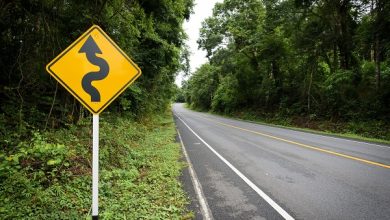The pandemic has gripped the hearts of all travel lovers with the arrival of the dreaded lockdown issued by governing bodies. In 2021, a year later, with the lifting or relaxation of lockdowns in most countries due to the arrival of COVID vaccines, travel restrictions seemed to have eased internationally.
One can only assume that upon being fully vaccinated, vacation is on the cards. Travel seems plausible and many countries that are tourist hotspots welcome travelers with open arms. This begets the question,
is it safe to travel after getting the COVID-19 Vaccine?
1. Research on the country you’re planning to travel

Countries across the globe carry out the necessary precautions to protect their citizens. This would also include tightening travel restrictions to minimize allowing foreign people to spread the disease inland. What would this mean for your travel? It simply warrants you to check if the country you wish to travel to allows people to fly in, may it be for personal reasons, holiday, or even business.
Confirm if your COVID vaccine is allowed for travel in the country you want to travel
Hence this bit is vital towards booking your vacation for the country you want to travel to. Countries such as New Zealand, control their borders to such an extent wherein only essential individuals are permitted entry. Countries such as Canada have a list of COVID vaccines which deem permissible to enter the country (link). The rest of the COVID vaccines aren’t allowed until further notice. Therefore, you must confirm your vaccination is allowed in the country you wish to travel to, and that you’re fully vaccinated.
In the event that your destination may not approve of your entry despite you completing the COVID-19 vaccination dosage, you could either wait for a positive news update or change your destination altogether. In addition to this, certain countries that are tourist hotspots, now offer the vaccination upon arrival to boost tourism. The Maldives is one such country and looks forward to continuing tourism under vigilant social distancing norms.
2. Carry travel essentials which is now the norm during the COVID-19 pandemic

Vacation lovers have this question in mind – What to pack when traveling during COVID-19 pandemic?
With the ongoing need to safeguard oneself against the dreaded COVID-19, you must ensure you’ve upgraded your travel accessories. This would include, and not limited to, your standard face mask or a mask with a removable filter for kids and adults (which you can reuse upon cleaning), a reusable face shield, hand sanitizers, and so on. It’s surprising how cumbersome adding these among your essentials, yet they ensure you travel safe – protecting you and those around you. Together, the spread of COVID-19 can be eradicated, whilst doing the things we want to. Packing up these travel essentials should be a cinch and for more details, you can refer to the following (link)
3. Mask-up and keep your social distance

Do I have to wear a mask after vaccination?
An ongoing question that puzzles a lot of people. They wonder if at all they should ever have their mask on, despite being fully vaccinated. A simple answer would definitely point you toward supporting constant mask utilization. “Face masks and physical distancing will need to continue into the foreseeable future” as explained by infectious disease specialist Kristin Englund, MD (link). It’s recommended to wear masks in public areas and outdoors, while it is safe to remove them when indoors and around fully vaccinated people, as said by CDC USA.
But the buck doesn’t just stop there. Social distancing practices are still observed and encouraged in many parts of the world. Wherever you wish to vacation, it would be great to observe said practices. It not only helps to protect you but shows a sign of acknowledgment that you’re doing your bit to help curb the numbers.
4. Keep interactions to a minimum

Meeting natives of the country you travel to is great to understand the land’s culture, history, and all in all learning more than what you actually expect. However, you must make a note of people around and try to avoid large outdoor gatherings to lessen the risk of contracting COVID-19. You must also take into account that a lot of people meet, commute, and come in close contact on a daily basis. Hence it would be best to keep close contact to a minimum and adhere to the country’s government policies on social distancing.
5. Ensure you carry out your RT-PCR test within 3-5 days after your trip

As you embark on your journey for your vacation, a mandatory RT-PCR, or commonly known as the COVID test, is carried out to allow you to travel to your destination if you’ve tested negative for COVID-19. The same test must also be carried out upon your return back home.
With your vacation wrapped up in the bag, the dreaded part of returning home awaits you. Despite the misery of leaving your vacay stay, you must bear in mind the mandatory RT-PCR test you need to carry out. The Reverse Transcription Polymerase Chain Reaction test is done to confirm for the existence of the corona virus or its variants in your body. This test allows you to be sure whether you need to know if you’re liable to your family, and others, in spreading the virus.
This is normally carried out in most cities, however, if this test is skipped by the authorities upon your arrival, it would be important that you do so.



